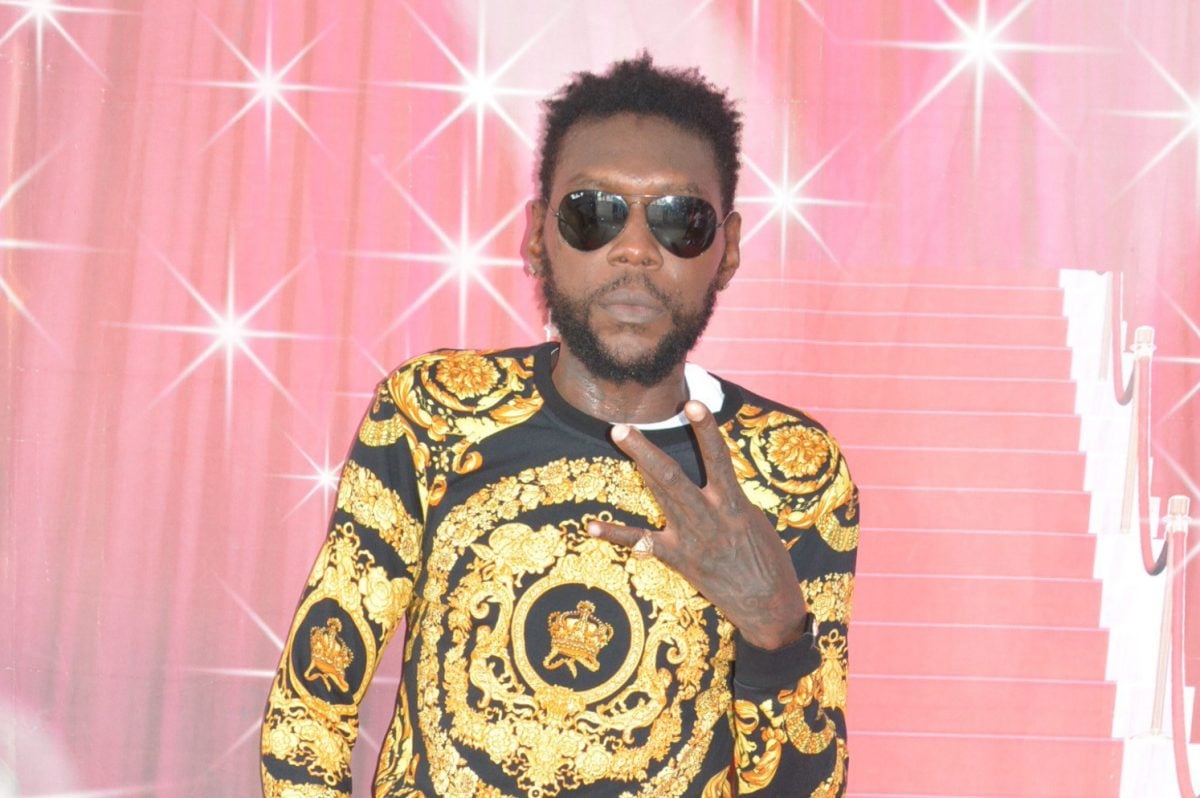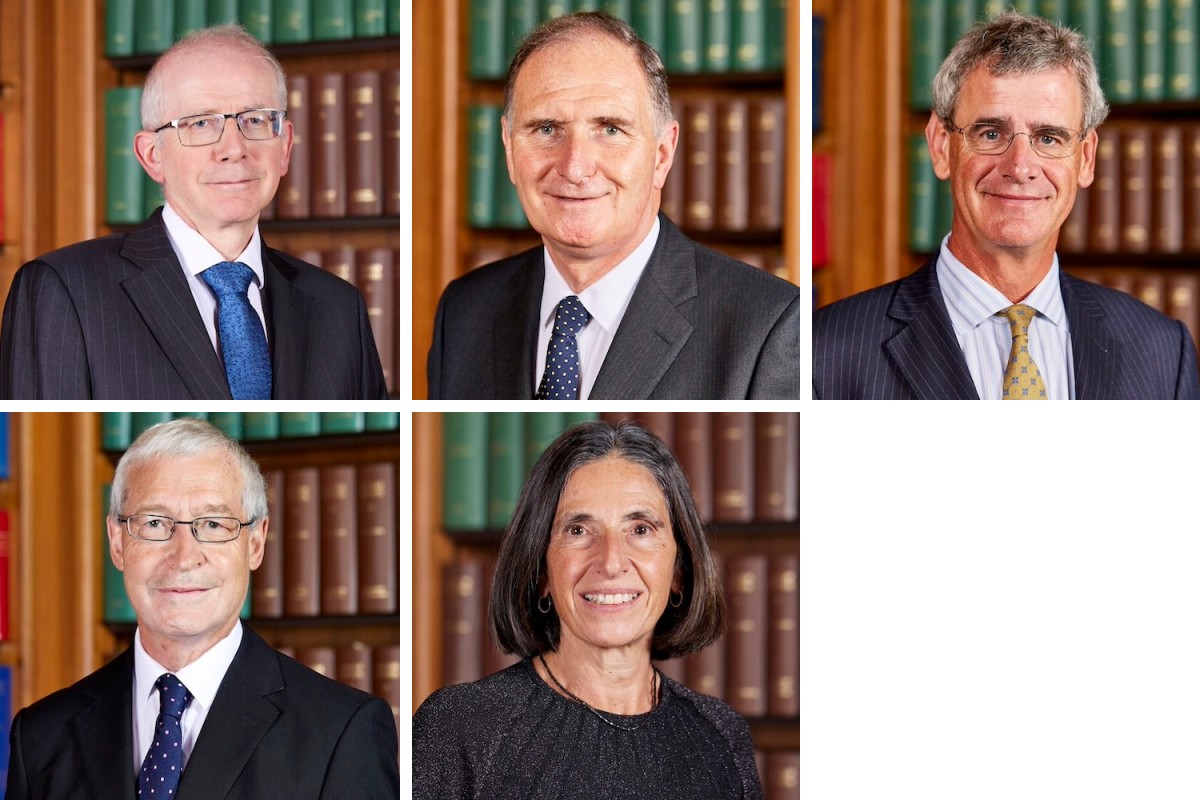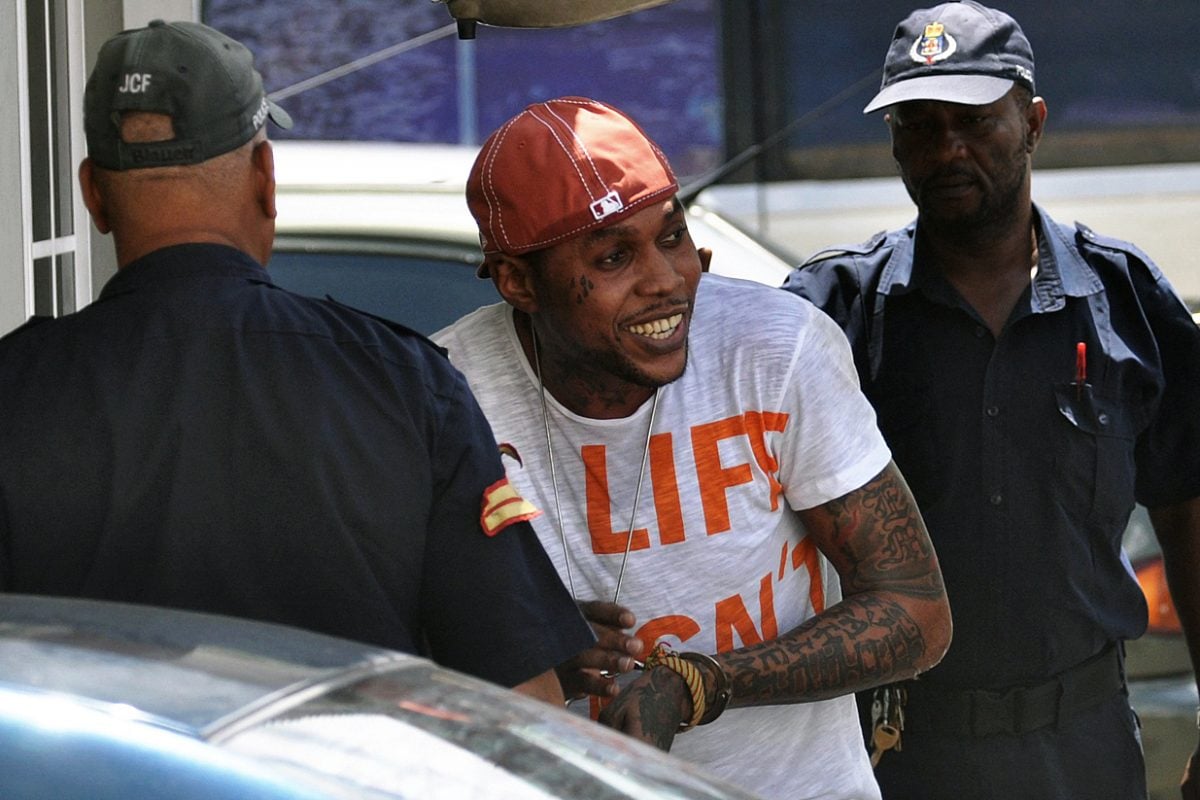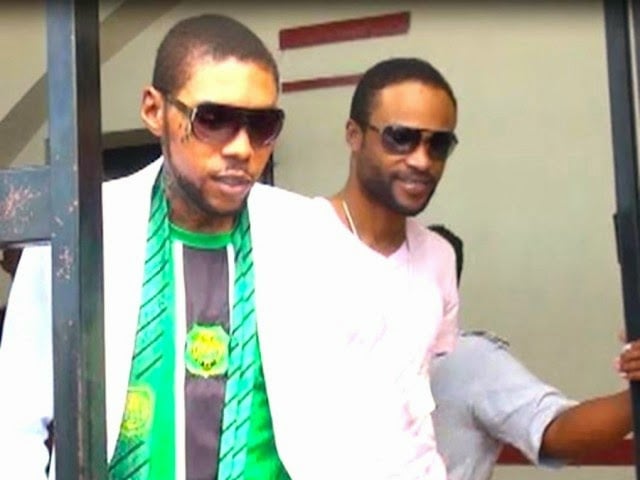Vybz Kartel’s Final Appeal: Everything We Know

Isat Buchanan, the attorney who represents ‘King of Dancehall’ Vybz Kartel, told DancehallMag on Sunday that he’s eager to argue the Fever deejay’s final appeal at the UK’s Judicial Committee of the Privy Council on Wednesday and Thursday (February 14-15).
In March 2014, Kartel, real name Adidja Palmer, My Life artist Shawn ‘Storm’ Campbell, and two associates, Kahira Jones and Andre ‘Mad Suss’ St. John, were all found guilty of killing Clive ‘Lizard’ Williams, who, according to prosecutors, had disappeared after failing to return two unlicensed firearms to Kartel. His body was never found.
After their conviction was largely upheld by the Jamaica Court Of Appeal in April 2020, the four men moved to the Privy Council, the final court of appeal for some Commonwealth nations, including Jamaica, seeking to overturn their life sentences that range from 22 to 32 years before parole. They allege, among other things, that crucial cellphone evidence was improperly obtained and that the trial itself, which lasted 64 days in the Kingston Home Circuit Court, was compromised.
The Privy Council has assigned a panel of five justices — Lord Reed, Lord Lloyd-Jones, Lord Briggs, Lord Burrows, and Lady Simler — who will hear arguments from both sides on key issues in the case.
They will then issue a ruling in due course, typically a few months.
According to Buchanan and court records independently obtained by DancehallMag, the key issues to be decided in Kartel’s final appeal are:
- Should the trial judge have excluded the telecommunications evidence relied on by the prosecution?
- How should the judge have handled the allegations that there were attempts to bribe members of the jury during the trial? Should the jury (or the particular juror said to have offered the bribes) have been discharged?
- Was the judge wrong to invite the jury to reach a verdict late in the day, given the special circumstances of the case?
Many regard Buchanan as the ideal candidate to take the Worl’ Boss’ case to the UK, as not only was he once a musician himself, but he’s also a big fan of the Life Sweet deejay. Asked if he was optimistic about the chances of winning, he responded: “I believe in the Jamaican constitution; it is the last instrument in existence that restores humanity in Jamaica.”
Cell Phone Evidence: Was Crucial Data Obtained Legally?
The central argument in the case questions the validity of cell phone and other telecommunication evidence presented by the prosecution.
Police had seized a total of 10 cell phones (including four belonging to Kartel) when the artist and his co-appellants were arrested on September 30, 2011. In particular, one of the phones, a BlackBerry Torch belonging to Kartel, its SIM card and SD card, allegedly contained evidence that linked him to Williams’ murder.
A Privy Council summary of the case states: “The prosecution relied heavily on evidence derived from these phones, which was taken from a copy of a CD rom provided by Digicel (a telecommunications provider in Jamaica) in response to a police request. At the trial, the appellants challenged the admissibility of this telecommunications evidence.”
“They argued that the police request to Digicel and Digicel’s provision of data to the police were carried out in breach of the Interception of Communications Act,” it continued. “Further, the evidence had been obtained in breach of the fundamental right to the protection of privacy of communication guaranteed by the Charter of Fundamental Rights and Freedoms contained in the Jamaican Constitution. However, the trial judge ruled that the telecommunications evidence was admissible.”
Jury Tampering Allegations: Was The Trial Compromised?
Another significant concern pertains to the attempted jury tampering.
During the trial, the judge, Justice Lennox Campbell, became aware of an allegation that a juror had attempted to bribe the jury forewoman by offering $500,000 JMD for her to influence other jurors to return a not-guilty verdict.
The offer was also allegedly made to some other jurors.
“After investigating the allegation and considering it with counsel for both the prosecution and the defense, the Judge decided that the trial should proceed. He did not discharge the jury, or the particular juror said to have offered the bribes,” the Privy Council records reveal.
In March 2023, the “particular juror,” a man named Livingston Caine, was sentenced to 12 months in prison at hard labour on a charge of attempting to pervert the course of justice in Kartel’s case. At the time, his attorney Valerie Neita-Robertson K.C told DancehallMag that he would be appealing the conviction.
Handling Of Jury Deliberations: Was Pressure Placed On Jurors?
Kartel and his co-appellants are also questioning Justice Campbell’s decision to send the jury for a verdict late on the day, potentially “pressuring” them to arrive at a decision.
“The judge finished his summing up at 3.42pm on 13 March 2014. The jury returned at 5.35pm, when the forewoman told the court that the jury had not reached a unanimous verdict,” the court records noted.
“The judge sent the jury out again. At 6.08pm, the jury returned and, by a majority of 10 to 1, convicted the appellants of the murder of Mr Williams.”
More Case Background
Vybz Kartel and his co-appellants had also sought to introduce two additional grounds for appeal, including the introduction of “fresh evidence” that Kartel’s cellphone had shown signs of tampering while in police custody. In February 2023, the Privy Council denied the two applications.
In July 2023, Bert Samuels, the attorney for Shawn Storm, had announced that the UK court had set tentative dates of April 16 through 18 in 2024 to hear the main arguments in the quartet’s appeal. However, Kartel’s battle with Graves disease led to an expedited date for the appeal. “His condition is being managed as best as possible in the circumstances currently. Proper treatment however is needed,” Buchanan said.
In addition to the cell phone evidence, prosecutors had relied on the sole eyewitness, Lamar “Wee” Chow, who made an account of the events that took place at the Fever deejay’s house in Havendale, St Andrew on August 16, 2011.
Wee testified that on that day, he had accompanied Shawn Storm and Williams to Kartel’s home, where they had been summoned over missing firearms, which were referred to, in cell phone messages, as “shoes.” Wee said Kartel, Andre St. John and Kahira Jones were already at the house when they arrived.
According to Chow, while Kartel was questioning them about the guns, Jones held Williams from behind while he (Chow) immediately ran into another room. He added that Kartel and Storm forcibly brought him back to the room, where he saw Lizard lying motionless on his back, with Jones bending over him and St. John holding a concrete block in his hands.
Chow claimed that he feared for his safety, so he fled again, this time running from the house by climbing over a gate. He testified that he was chased by Kartel, who later assured him that he had nothing to worry about. However, instead of returning to the house, Chow said he accompanied Kartel to a hospital where he (Kartel) was treated for a dog bite he had received during the chase.
Kartel’s defense had questioned Chow’s credibility during the original trial and cited his inconsistent account of the events, including a purported letter by Chow to a Public Defender which stated that he saw Lizard after August 16, 2011, and that the police had pressured him to give a conflicting statement.
Gaza Slim, now Vanessa Bling, known for her ‘ride or die’ anthems Anything A Anything and One Man with Kartel, was also caught up in the case after she filed a police report claiming that Williams had robbed her after the date of his death. Bling was charged with attempting to pervert the course of justice. She spent a brief time in jail and years on bail before the charge was dropped in 2014.
In April 2014, Kartel was initially given 35 years before being eligible for parole. It was, however, reduced to 32 years and six months, following a Jamaica Court Of Appeal ruling in 2020.
St John, who had to serve 30 years before being eligible for parole, had his time shaved down to 27 years and six months. Shawn Storm and Jones, who had to serve 25 years before being eligible, had theirs reduced to 22 years and six months.
Download the full Jamaica Court Of Appeal ruling here.
The Privy Council Case ID is JCPC 2022/0049, “Shawn Campbell and 3 others (Appellants) v The King (Respondent) No 2 (Jamaica)”.



